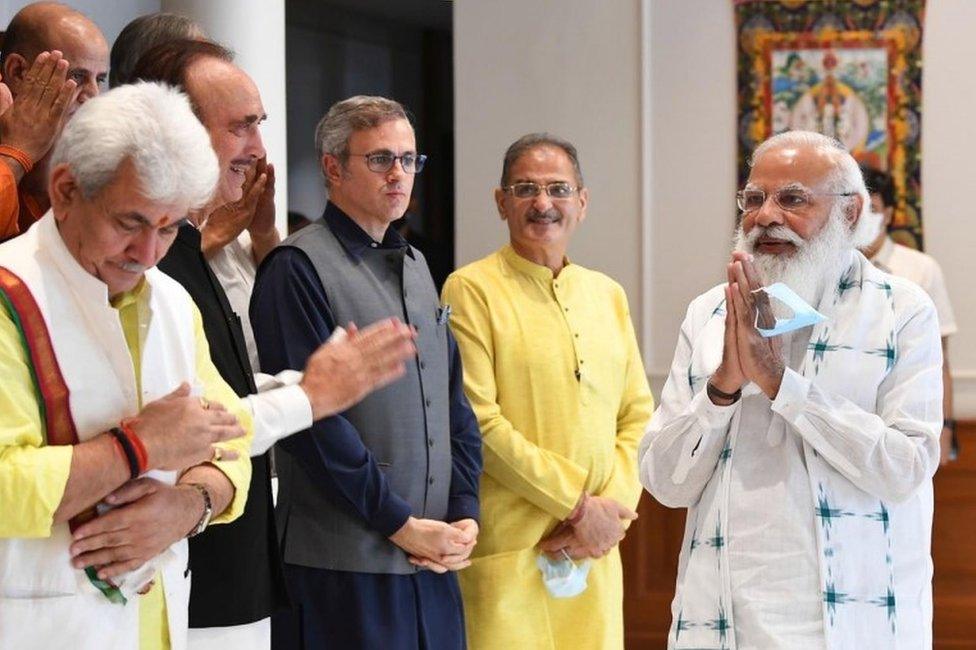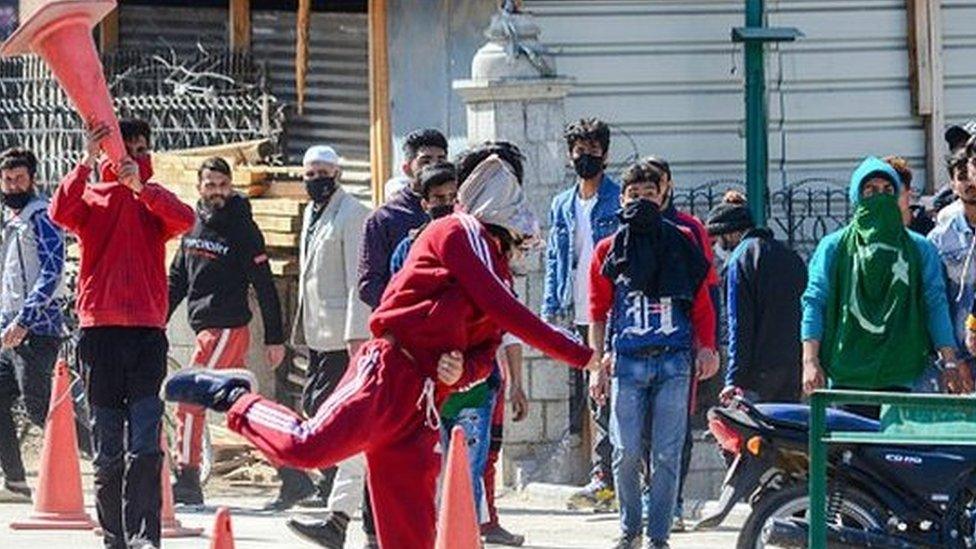Jammu and Kashmir: PM Modi promises elections in Kashmir
- Published

Former chief ministers of the region and several other leaders attended the meeting with Mr Modi
Indian PM Narendra Modi has said his government plans to hold elections in Jammu and Kashmir soon.
He told regional leaders in Delhi on Thursday that polls could be held after an exercise to redraw the boundaries of assembly seats was carried out.
This was the first such meeting since a controversial decision revoked the region's special status in 2019.
Relations between Delhi and the restive Muslim-majority Kashmir valley have worsened in recent years.
Mr Modi's government imposed direct rule in 2018 after his party's coalition with a local party broke up.
Allow X content?
This article contains content provided by X. We ask for your permission before anything is loaded, as they may be using cookies and other technologies. You may want to read X’s cookie policy, external and privacy policy, external before accepting. To view this content choose ‘accept and continue’.
The region used to be a state, before being turned into a federally-administered territory in 2019. Local leaders reportedly told Mr Modi to restore statehood and hold elections.
Former chief ministers of the region, Farooq Abdullah, Omar Abdullah, Mehbooba Mufti and several other leaders attended the meeting.
The ministers are part of an alliance known as the Jammu and Kashmir People's Alliance for Gupkar Declaration, a conglomerate of political parties critical of Delhi's aggressive and highly militarised role in the valley. The alliance won the largest number of seats in municipal elections last year.
Some leaders, including Omar Abdullah, questioned the timing of the decision to redraw the boundaries of assembly seats, which is know as delimitation. It's carried out routinely to ensure all constituencies, both parliamentary and state assemblies, have almost a similar number of voters. The exercise is due to take place across the country only after 2026.
The leaders reportedly also raised the revocation of Article 370, which gave the state special powers. The government reportedly said that a challenge to the decision was being heard in the Supreme Court and all parties should wait for the outcome.
The sudden loss of special status or autonomy - guaranteed by the Indian constitution - was met with massive protests in Indian-administered Kashmir.
Mr Farooq Abdullah, Mr Omar Abdullah and Ms Mufti were among several political leaders detained under house arrest for months. Thousands of students, teachers, activists and other locals were also arrested - many are still in jail.
The move was accompanied by a severe communications and internet blockade, which was only lifted in 2020.

The loss of special status met with anger and protests
Kashmir has been the site of a decades-old insurgency against Delhi, and the resistance has been met with increasing militarisation, which only strained relations further. India's security forces have been repeatedly accused of excesses by locals - a charge Delhi has always denied.
So the 2019 decision was seen by critics as part of a larger BJP right-wing agenda. The party has been accused of using divisive rhetoric against the country's Muslims.
Since the decision, Delhi has imposed a slew of administrative and demographic changes through new laws, sparking resentment and anger in Kashmir.
Experts said Thursday's meeting was an attempt to tackle mounting criticism against Mr Modi and his government for failing to effect any political change in the region.
India and Pakistan both claim Kashmir in full, but control only parts of it.
The nuclear-armed neighbours have fought two wars over Kashmir, most recently clashing in a series of aerial attacks over the territory in February last year.

Students in a remote village in the Himalayas struggle to access the internet in order to access classes